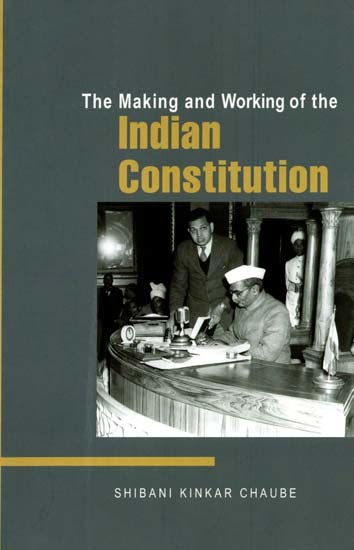
| Specifications |
| Publisher: National Book Trust India | |
| Author Shivani Kinkar Chaube | |
| Language: English | |
| Pages: 291 | |
| Cover: PAPERBACK | |
| 8.5x5.5 | |
| Weight 364 gm | |
| Edition: 2009 | |
| ISBN: 9788123755489 | |
| HBH157 |
| Delivery and Return Policies |
| Ships in 1-3 days | |
| Returns and Exchanges accepted within 7 days | |
| Free Delivery |
Four decades ago, I studied the Constituent Assembly of India and the framing of the Indian constitution for my doctoral degree from the University of Calcutta, the result of which was first published 35 years ago. The present work is the product of further research and teaching notes over the period, some results of which were published in edited books, journals and daily newspapers.
This book is not a lawyers' manual. Indeed, hard-boiled lawyers may find very little that is attractive in this volume. It is the work of a political scientist that may attract students of political science and general readers who understand more politics than law. Conscious effort has been made to use legal jargons to the minimum extent and references to articles of the constitution as well as relevant civil laws have been kept at the unavoidable minimum.
The guiding conviction of this work is that a constitution is as much politics as it is positive law. Now that the constitution of India has worked for nearly six decades, we take a modest satisfaction over the fact that India's is the only constitution in the developing world that has lasted so long. Let it also be noted that the reason behind the survival of a constitution is, in fact, more political than legal.
Send as free online greeting card

Visual Search